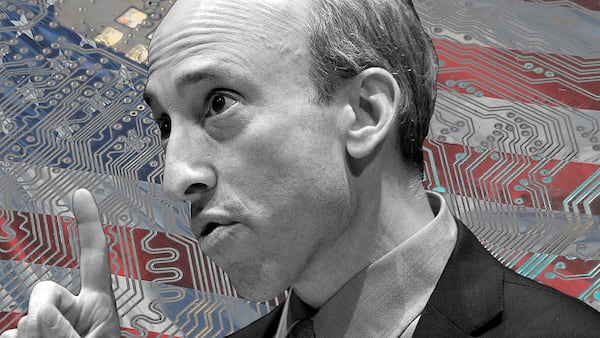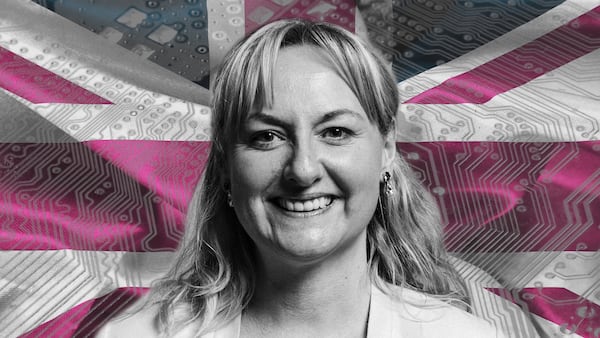- Founders Philipp Pieper and Timo Lehes embraced regulation in Germany to win over institutional investors.
- Investors remain wary of tokenised stocks and bonds even as Goldman Sachs, BlackRock and TradFi giants explore proposition.
- Swarm Markets still avoiding US even though it has three licences in EU.
Back in 2019, Philipp Pieper committed an act that many crypto founders would hate — he knocked on the door of financial regulators and pleaded with them to police his startup exchange. Moreover, he did so in Germany, a nation famed for its strict financial rules.
The move flies in the face of crypto mavens who’ve resisted government oversight with sharply worded social media posts, and, in the case of Coinbase, a lawsuit filed against the US Securities and Exchange Commission.
A rare thing
Yet Pieper and his partner Timo Lehes had a crazy idea: They wagered hedge funds, family offices, and retail investors would love to buy and trade crypto offerings if they were bulletproofed with proper know-your-customer and anti-money laundering practices.
So they asked officials of Germany’s Federal Financial Supervisory Authority, aka BaFin, to go through their business model with a fine-toothed comb and tell them what needed to be approved, and what didn’t. In return, Swarm Markets educated BaFin officials on the ins and outs of smart contracts and DeFi.
Now Swarm has become a rare thing in decentralised finance — a happily regulated platform offering various custody and transaction services and crypto products.
This year, they stole a march on rivals by offering a menu of tokenised stocks for Apple and Tesla, and and digital versions of two US Treasury ETFs.
But will investors bite?
More than a buzzword
That remains to be seen as the tokenisation boomlet struggles to prove it’s more than just a buzzword. A raft of influential players — Vitalik Buterin, MakerDAO, Blackrock CEO Larry Fink , Goldman Sachs — are touting asset tokenisation as a boon for blockchain technology, and investors. Just because tokenisation works doesn’t necessarily mean it’ll attract liquidity.
“At the end of the day, what are you achieving by tokenising an asset?” said Philippe Bekhazi, the CEO of XBTO Group, a Bermuda-based crypto investment firm. “It may be more capital efficient but who is buying this stuff? It’s the adoption that is the problem.”
‘We still believe in the ethos of self-custody, transparency and executable smart contracts — core aspects that define DeFi.’
— Philipp Pieper
And so far, tokenisation has yet to prove itself to banks and asset managers. Octavio Marenzi, CEO of consultancy Opimas, told DL News that trading volumes of tokenised assets have been “crushingly disappointing.”
In March, his research found tokenized bonds accounted for a minuscule 0.001% of the total bond market. Of course, tokenised securities are in their infancy, but Marenzi’s analysis found trading volume in these on-chain products was negligible in the last two years.
Apple shares
Swarm Markets said investors traded about $179,000 worth of tokenised securities on its platform over the first two months of their release. Tokenised Apple shares were the most popular offering and accounted for 58% of trading volume.
While that figure may be small, it’s early days and the number of users on Swarm Markets’ platform jumped almost a fifth in the first quarter.
NOW READ: Tether reaches record as jittery crypto investors flock to stability
Pieper and Lehes have long argued that DeFi’s ability to erase intermediaries will win out. The process can make real world assets ranging from real estate, stocks, bonds, commodities, and even art easier and cheaper to trade.
As TradFi veterans, Pieper and Lehes know full well that ticking all the boxes, especially the regulatory ones, is no guarantee of success.
Pieper started his career at Deutsche Bank and Allianz Group before indulging his entrepreneurial instincts at startup accelerators and tech ventures in California. Lehes ran various investor groups and set up an SEC-registered broker-dealer in the US.
Change market structure
Then they twigged onto how blockchain’s permissionless approach could change market structure.
“We thought that the nature of the blockchain — at the core being a single source of truth and an instant settlement layer — has huge implications for financial products. We thought, here’s technology that you can apply to today’s trading mechanisms,” Pieper told DL News.
Initially, Swarm intended to focus on the primary issuance of securities being replicated on-chain. Pieper and Lehes closely watched companies like tZERO and OpenFinance.
NOW READ: Binance loses $1.8bn in deposits in May as banks curb exposure to digital assets
OpenFinance and tZERO launched SEC-regulated broker-dealers for security tokens with an eye on becoming linchpins of tokenisation. Because they were regulated, these exchanges had to work with centralised custodians, layering their blockchain on top of their older systems, Pieper said.
“It really doesn’t make sense to do that,” he said. “It’s the worst experience to put a technology not made for a single system use case even on top of legacy systems.”

For Pieper, the US clearly lacked the kind of regulatory framework that would support blockchain businesses. So he and Lehes looked at Liechtenstein, Malta, Cyprus, and Jersey, the British Crown Dependency.
Then to Pieper’s surprise, Germany presented itself as a promising environment for his startup: in 2020, the country amended its banking laws to classify crypto as a financial instrument.
Holding off on US
This contrasted with the US, which has yet to pass crypto-specific federal laws and continues to shape a regime through enforcement actions, much to the chagrin of DeFi founders. They recognised that if securities such as stocks and bonds were put on-chain, they would be subject to the same regulation as stocks and bonds.
And even though Swarm Markets is regulated in the European Union, it’s holding off on serving US customers until there’s more clarity from Washington.
But applying to be regulated by BaFIN was no walk in the park. Pieper found that officials struggled to fit DeFi into the conceptual models of traditional finance. And endless scandals streaming from the DeFi world didn’t help his cause.
NOW READ: Crypto investors cry foul as Finblox converts deposits to tokens to offset 3AC losses
“It took so much time to work through some of these concepts because there’s no notion of neutral, fully executable markets in traditional finance,” Pieper said. “When you bring it up, regulators think mostly of anti-money laundering, or who the counterparty is to all this. And then alongside this are all these rug pulls that happen in DeFi.”
Even so, Pieper believes DeFI must embrace a degree of centralisation. That may be anathema to many in crypto, but Pieper says Swarm supports many of the space’s core values.
‘The question becomes, Well, why? Why does blockchain actually get you to zero cost?’
— Octavio Marenzi
“We still abide by the rule of self-custody, which means we aren’t trying to sneak a traditional markets architecture into something we call DeFI,” he said. “We still believe in the ethos of self-custody, transparency and executable smart contracts — core aspects that define DeFi.”
The problem is that traditional finance cleaves to its networks of custodians, exchanges, clearing houses and so on that intermediate trade. Blockchain companies believe they can disrupt this Byzantine structure and bring trading costs to zero, but there are business reasons these intermediaries exist, Marenzi said.
Liquid staking
First, they distribute risk throughout the market, an important consideration for strictly regulated banks. Secondly, few institutions want to run their legacy systems alongside blockchain systems.
“The question becomes, “Well, why? Why does blockchain actually get you to zero cost?” Marenzi said. “If you have to run two systems in parallel, you’re going to multiply your costs. So it’s not convincing yet, and I think that’s the real problem.”
Pieper countered there hasn’t been “tradeability” before in real world assets in DeFi. That extends to digital assets themselves: Swarm Markets offers tokenised forms of liquid staking tokens for Ethereum, Solana, and Polkadot.
Gold has been tokenised
That may sound like duplication, but these forms of staking tokens actually enable investors to avoid waiting on redemption procedures that can run from two to 21 days.
“Now that the tradeability is there, you can develop all these different benefits and models,” Pieper said. Besides, he added, tokenisation is already an established market.
“Stablecoins are tokenising cash, gold has been tokenised,” he said. “We’re just surfacing stuff that organisations like Circle have been doing behind the scenes, buying T-bills and putting that straight up onto the blockchain.”



